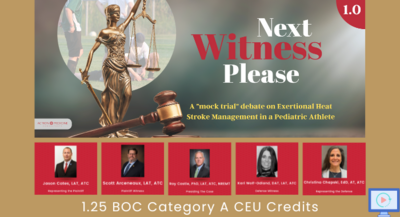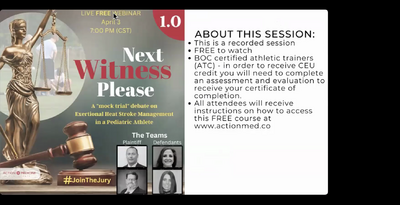AI Chat Bot
NEXT WITNESS PLEASE 1.0 - A Mock Trial Debate on Exertional Heat Stroke Management In A Pediatric Athlete › Learning Material
Presentation (Video)
Updated Jan 22, 2024
Copyright © 2025 Action Medicine Consultants, LLC
___MESSAGE___
___MESSAGE___


